Quote Of The Day: Price Wars Edition
Is the auto industry headed for a price war? Hyundai Motor USA CEO John Krafcik seems to think so, telling Reuters
I think we can officially say that a price war broke out in the industry. There is apparently a lot of pressure to deliver sales results. I would call this a step backward for the industry. This is short-term thinking in a long-term process that hurts manufacturers and consumers.
Krafcik says GM kicked off the rush for increased volume by cutting prices in January, and that Toyota (which has increased its incentives by 37.5% since last January, according to TrueCar) “quickly” responded by matching The General’s price cuts. Honda, Nissan and Chrysler have also kept their incentives high, and Chrysler has told Automotive News [sub] that it plans on increasing sales by 45% this year. Says Krafcik
We’ll see if others decide to follow. It’s certainly not in our plan right now.
Krafcik has a point: though sales have recovered over the last year as the economy has come back from the depths of recession, industry-wide incentive spending is up 1.3% in the last 12 months. Rather than taking advantage of the economic recovery to bring incentives down and transaction prices up, automakers appear to be focused entirely on volume. That’s certainly the message GM has sent by announcing that it would no longer release its incentive data. And, as Krafcik points out, the industry has already suffered mightily from such short-term, unsustainable thinking… but not everyone shares his concern.
GM’s response: sales incentives are “targeted.”
Rick Scheidt, vice president of GM’s Chevrolet, argued that Chevrolet has become more strategic, offering few incentives on hot-selling models such as the Equinox and Cruze and higher ones on its Silverado pickup to match competitors.
“If you don’t participate, you aren’t going to be a big player,” said Scheidt. “Things are much more targeted now. I don’t think you can read that much into just one month.”
That critique was echoed by Edmunds’ head analyst Jessica Caldwell, who tells Reuters
GM was very aggressive in January, but I wouldn’t call it a price war. Toyota’s incentives were not extremely different from what it had been doing. In February, other brands may be more aggressive as a reaction (to GM).
What’s left out in this analysis is that Toyota was long a counterweight to the Detroit automakers’ incentive binges, maintaining strong price discipline without losing volume. That changed this time last year when, under attack from all sides during its recall scandal, the Japanese automaker began to boost incentives… and it has yet to take its foot off the accelerator. Toyota maintains that it “isn’t leading the industry,” but by relaxing its incentive discipline, it’s helping accelerate an incentive war.
It’s easy to forget how much overcapacity clean-up the industry went through in the last few years, but it’s foolishness to think overcapacity can’t come back. If manufacturers start cranking up production volumes and use incentives to clear unsold inventory, the industry could pull itself back out of its recovery. We hear reports from the NADA convention about the level of ego involved in sales teams of several large manufacturers… by one account, “it’s getting personal.” As good as low prices might be for consumers, let’s hope that sales bosses take their eye off volume long enough to make sure the entire industry doesn’t cut its own throat trying to outsell the next guy. The last thing America’s auto brands need now is to starve themselves of profit.
More by Edward Niedermeyer
Latest Car Reviews
Read moreLatest Product Reviews
Read moreRecent Comments
- Jonathan Sounded interesting, until I got to the all electric part. No thanks.
- Paul Alexander These comments represent a great cross section of what counts for political discussion in this country: either dunking on Kool-Aid drinking Biden (or whatever else Democratic politician), or in a mirrorlike fashion, dunking on Kool-Aid drinking Trump supporters (or whatever else Republican politician). My worthless opinion? They all represent elite interests, which run counter to everyone in this comment section's interests, regardless of the crumbs they may kick down occasionally.
- Duties Imagine we lived in a world where all cars were EV's. And then along comes a new invention: the Internal Combustion Engine.Think how well they would sell. A vehicle HALF the weight, HALF the price that would cause only a quarter of the damage to the road. A vehicle that could be refueled in 1/10th the time, with a range of 4 times the distance in all weather conditions. One that does not rely on the environmentally damaging use of non-renewable rare earth elements to power it, and uses far less steel and other materials. A vehicle that could carry and tow far heavier loads. And is less likely to explode in your garage in the middle of the night and burn down your house with you in it. And ran on an energy source that is readily extracted with hundreds of years known supply.Just think how excited people would be for such technology. It would sell like hot cakes, with no tax credits! Whaddaya think? I'd buy one.
- MrIcky Objectively, Biden clearly isn't the worst president ever based on straight metrics - some of you are rolling around in your hysteria too much and you're wearing rose colored glasses for Trump.It's not the worst economy: Very low unemployment with rising wages- that may or may not last but it's what is right now.Both stocks AND bonds are performing well, which is fairly rare.Inflation is relatively high for the last 20 years at 3.4% as of 5/15 but beats the 50 year average of 3.8%Not a Biden fan, but logic vs yelling at clouds and pearl clutching that immigrants are going to eat your babies.***objectively, btw- it would be very hard to beat Carter for worst for the last 60 years.
- Daniel Bridger When Biden yells "jump" and CEOs ask how high? No common sense anymore.



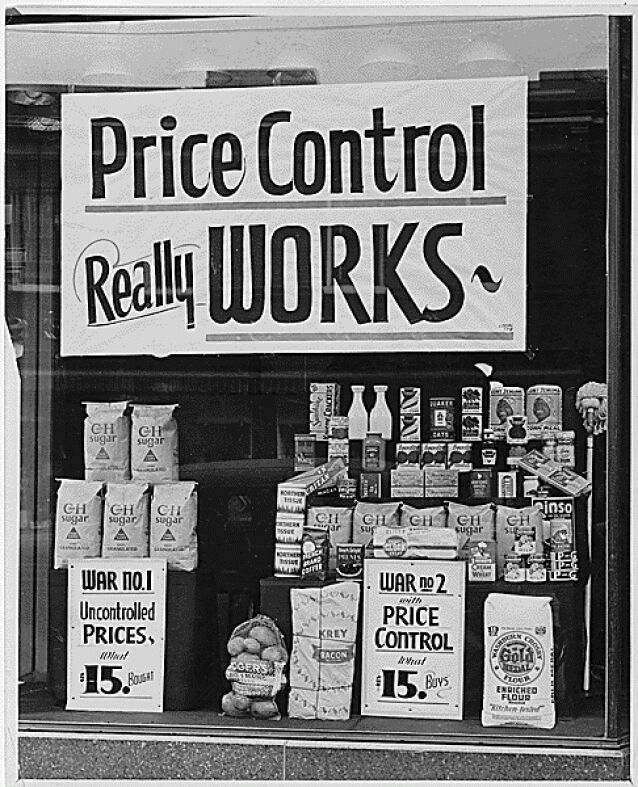















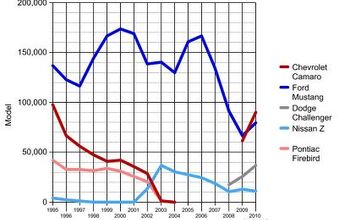
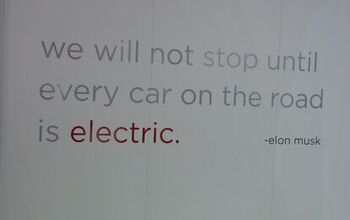
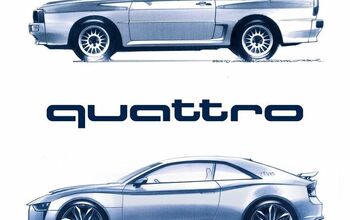
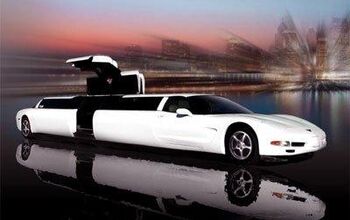











Comments
Join the conversation
Price wars are just a race to the bottom. If I recall, Chrysler started it all with their "tent sales" in 1974, during a recession, and once it got out that if the OEM's were still making money with the price cuts, consumers rightly assume that's really what the products are worth, and when you start that sort of thing, all the "rich, Corinthian leather" in the world won't ever let you go back. So, here we are almost 37 years later and nothing's changed. By the way, I can't take my eyes off the photo used in this article, the main reason I haven't commented 'til now - the hand-lettered signs - that industry certainly did change - computer-manufactured and dumbed-down. I used to hand-letter signs all the time as part of my job back then and later, on the side for extra money.
So let me get this straight. The U.S. government illegally (certainly unconstitutionally) bailed out two major auto companies - GM and Chrysler - which had failed. They also shafted the bond holders. Then took over the bankruptcy and handed partial ownership to their cronies and friends in UAW places, as well as (in the case of Chrysler) handing partial ownership to FIAT of ITALY. All of this, instead of allowing the bankruptcy courts to actually do things in an orderly fashion AS WRITTEN BY LAW. So with all of this in mind, we can obviously see that making sure that the worst run companies can now cry for help because they are too big to fail, and receive it at the expense of the well run companies and taxpayers. Then the same government makes sure to try to "diss" a major competitor by making up sh!t about unintended acceleration to try to increase "their guy's" sales - and this is pretty well proven by the fact that another branch of the same government essentially came out a few days ago and said there were electronic gremlins in Toyotas. So now that we STILL have massive production capacity overages available for the market in the US (because Chrysler survived and GM didnt' get properly shrunk down due to interference with the free market and legal bankruptcy laws by a fascist government in Washington DC).... we now have DECENTLY RUN companies which have been PUTTING JOBS INTO THE UNITED STATES held at a massive disadvantage because GM especially desires more market share and are planning to buy it with "incentives" which are no doubt paid for by we taxpayers, ultimately. Wake me up when I no longer live in the Twilight Zone, 'mkay?